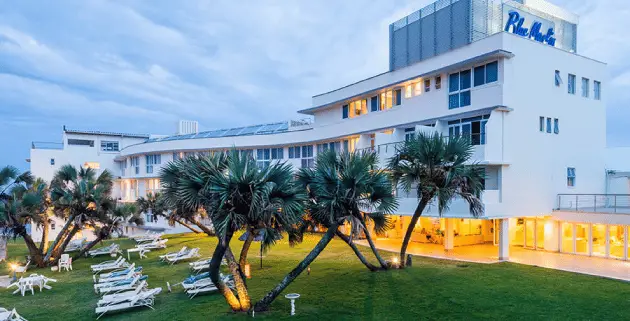Hotel Industry’s Balancing Act
 Seeing as much of the world as possible is on most tourist’s bucket lists. Experience and memories constitute the return on their life investment but being able to get their heads around justifying the costs involved can be a whole other story, writes Janine Mare.
Seeing as much of the world as possible is on most tourist’s bucket lists. Experience and memories constitute the return on their life investment but being able to get their heads around justifying the costs involved can be a whole other story, writes Janine Mare.
There are exchange rates, transport to-and-from where they’re headed, plus getting around wherever they’re going, to consider. But getting tourists to think about how important comfort, security and safety are when they have their valuables in a back pack, and how he or she needs a good night’s sleep to get the most from their travelling days, then the hospitality portion of their budget may start to make a little more sense. And if they’re travelling on business? All of the above – as much if not more so!
Choosing accommodation for leisure or business almost always comes down to location. Can tourists or business travellers afford to lose precious time commuting in and out of the hub of where they’re staying? Take Cape Town for example; they may choose to stay in Muizenberg, but if getting the most out of the Mother City’s attractions or getting economic value from their business day in the city is a priority, they need a quality, trusted, top hotel in a competitive location.
Feel like they’re buying the whole room?
Point out the costs involved in order for a tourist-attractive hotel in a hub like Cape Town to deliver world-class services to its guests. If it’s necessary to look world-class and deliver world-class, it needs to be world-class. This requires qualified employees, adequate cleaning facilities for rooms and linen, a qualified team of chefs and a fully equipped kitchen for catering, and fine furnishings in rooms, meeting rooms and hallways that contribute to a memorable and highly-rated experience. At some point you need to charge guests, so you need credit card facilities for payments that come with their own set of bank charges; and before all of that, you need capital investment. This will probably be in the form of a loan from a bank with its own set of considerable monthly repayments and interest factors. And then there’s another petrol increase!
As individuals and as organisations, we’re all susceptible to how a petrol price increase sends the rest of our bills into a state of serious concern due to the relative knock-on effect. A hotel business is no different; billings are based on a) capacity, and b) the cost of consumables, services and overheads, before it can invoice a guest for anything. And when there’s a hiccup with Eskom or a price increase from same, the costs have to be challenged – or absorbed – in order for the business model to continue to survive.
As a service industry offering, it is important for hotels to be consistent in their offering. So for the hotel and tourism industry, this means benchmarking the offering with international standards while meeting monthly financial targets throughout the year – even in the off-season months – while being competitive at the same time. The challenge then is for hotels to cut costs and save money behind the scenes – in areas that do not directly affect the guest’s experience so that the establishment remains competitive. This helps to leverage return business which translates from happy clients and which, in turn, makes your business happy too.
There’s a lot for a tourist to consider when choosing a hotel. Is it a fly-by-night establishment where you can’t leave your passport in the room, or is it one with a great reputation based on good reviews and that comes at a competitive price, and in a good location?
Balancing quality and costs
There are establishments that will meet you on both of these, but how and where you choose to allocate your budget comes down to your unique set of leisure and/or business needs. Expenses are not about an irresponsible allocation of funds but rather a responsible allocation of funds where you can see and measure your Return on Investment (ROI) for what you put in.
Whether it’s for business or pleasure, be sure that where you decide to put your client’s hard-earned money is an establishment that respects and understands the value of that hard-earned money.
A hotel’s potential to make a decent ROI is dependent on its potential to book rooms to capacity – although this is rare. Premium hotels in Cape Town for example work on a 60% annual occupancy, and have to contend with some very tight margins. And when this is the case, if a hotel is selling a room at a nightly rate of R2,500.00, how much are they ever really making when the hotel is never entirely full – a likely reality when you look at these averages of annual occupancy:
Jan Feb Mar Apr May Jun Jul Aug Sep Oct Nov Dec
62% 83% 72% 58% 49% 48% 48% 50% 69% 62% 68% 74%
These figures show the very definite risky reality that hotels face. Even at its highest 83% occupancy in February, this is still not full.
For a more comprehensive report with truly sobering infographics, visit the South African Hotels blog spot titled ‘Hotels and Their Financial Challenge’ at: www.south-african-hotels.com
Note: There is an option available to increase hotel room occupancy – and improve cashflow – tap into the US$12 billion barter trade network. See our article HERE – Editor.






